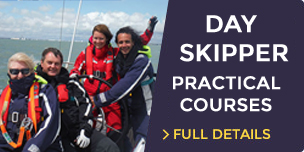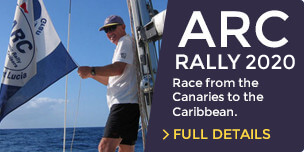What is the Difference Between Yachtmaster Ocean and Offshore?
341 views | July 11th, 2023First Class Sailing is one of the UK’s leading schools for those seeking to complete their RYA qualifications and certificates. We offer the full ranges of courses, including RYA Yachtmaster Ocean and Yachtmaster Offshore.
We are often asked what the differences are between the two courses, so this short blog posts will explain all you need to know.
The simple difference between the two qualifications, is astronavigation. You should take the Yachtmaster Ocean exam if you want to sail large distances over long periods of time. It will mean you can navigate by the sun and stars, fixing your position with a sextant if your electronic navigation fails.
The difference between Yachtmaster Offshore and Ocean once qualified
Once you hold a qualification, it will make a difference as to what you can do in addition to the astronavigation aspect we discussed. The RYA Yachtmaster Offshore qualification makes you a competent skipper of a yacht of up to 24 metres in length, in waters up to 150 miles from land.
If you are qualified with RYA Yachtmaster Ocean, the difference is you can skipper a vessel of 24 metres in length and up to 200 gross tonnages anywhere around the globe.
Differences between the practical courses
To take the Yachtmaster Offshore course, you must have at least 50 days’ sailing time, with two of those days as the skipper. You also need to have logged 2,500 nautical miles, 5 passages over 60nm including two overnight and two as skipper, all within the last ten years.
Half the qualifying sea time must have been conducted in tidal waters & on a sailing vessel 24 metres or under.
You will also need a VHF radio licence, a First aid certificate and sound knowledge of using a Radar.
To take the Yachtmaster Ocean course, you must first have the Yachtmaster Offshore certificate.
You also need to have completed a qualifying passage that meets the following criteria:
- The candidate was fully involved in the planning of the passage, including selection of the route, the navigational plan, checking the material condition of the yacht and her equipment, storing the spare gear, water and victual and organizing the watch-keeping routine.
- During the passage a minimum non-stop distance of 600 miles must have been run by the log, the yacht must have been at sea continuously for at least 96 hours and the yacht must have been more than 50 miles from land while sailing a distance of at least 200 miles.
- Qualifying passages for Yachtmaster Ocean and Offshore should be non stop by the shortest navigable route with no change of skipper. Passages such as recognised races which may not comply exactly with these requirements may be submitted to the RYA for approval before the voyage.
- Hold a First Aid qualification, as for Yachtmaster Offshore
- For Ocean Passages, the following definition will apply: Throughout the passage the candidate must have acted in a responsible capacity either in sole charge of a watch or as a skipper.
Posted by: Heighway








